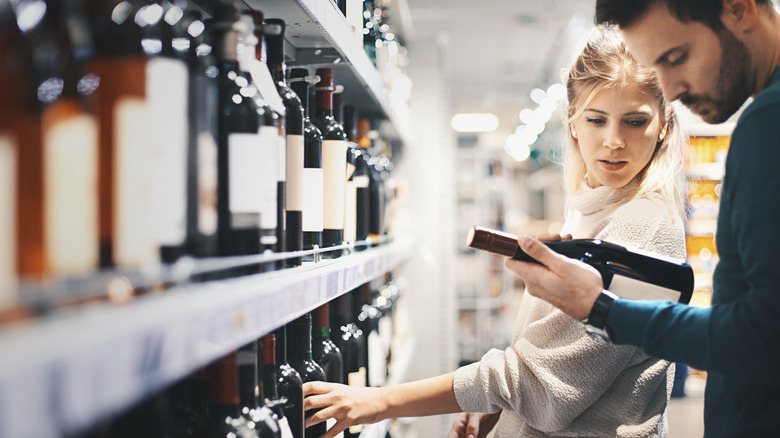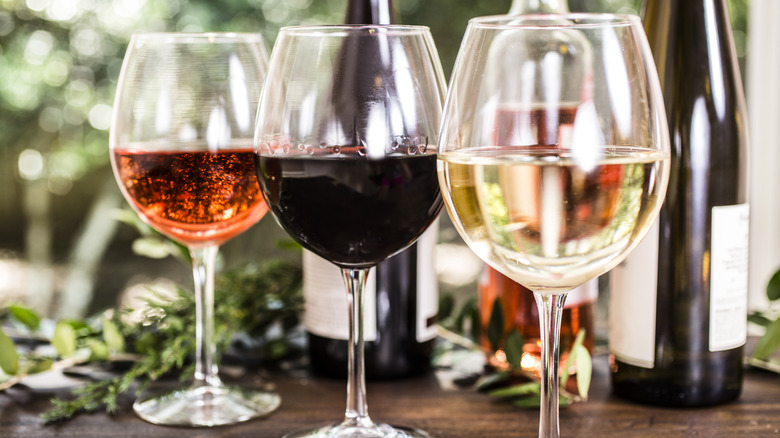One Mistake You Shouldn't Make When Picking A Bottle Of Wine, According To An Expert
Choosing a bottle of wine can be daunting, whether you're handed the restaurant's wine list or purchasing a bottle from the liquor store. Even for an armchair wine expert, with so many regions and vintages to choose from, making a decision can be challenging if you're unfamiliar with the selection. Bottles can be quite expensive, so it can be a costly mistake if you don't enjoy the taste.
To help you become a more informed consumer, Food Republic spoke with wine expert Doreen Winkler, a sommelier and the founder of Orange Glou, a wine store in New York City, and the world's first orange wine subscription service. According to Winkler, the biggest mistake people make when selecting a bottle of wine is "buying wine because the label is cute or because it's inexpensive." While staying within your wine budget is important, you're wasting money if you end up pouring the bottle down the drain. Cheap wine may contain more additives, and be produced from lower-quality fruit.
Winkler suggests keeping track of wines you have enjoyed by taking photos of the labels, or keeping notes on your phone. There are also free apps like Vivino and Delectable that keep track of your tasting notes, and make suggestions based on your preferences. It's important to know what style of wine you prefer so that when you enlist the help of a sommelier for a recommendation, you can accurately describe what you're looking for.
Shopping for different colored wines
Whether shopping for red, white, or orange wine, the approach is consistent. Start by finding a reputable wine shop, either by asking for recommendations from friends, or researching local wine tastings. Doreen Winkler emphasizes the importance of determining whether you're "shopping for a bottle to drink now, a gift[,] or something to put away that will age," noting that white, red, and orange wines can all be aged.
When seeking assistance, be descriptive and use appropriate wine terminology to receive accurate advice. Winkler suggests starting with the desired body of the wine, asking yourself whether you want something lighter or fuller-bodied. This will guide your grape choice. She advises against using subjective terms like "sweet," as interpretations vary widely. For example, if you enjoy full-bodied Napa Valley cabernets, but are looking for a more affordable option, an expert can direct you to similar wines from less expensive regions like Australia or Portugal.
Winkler also recommends specifying if you prefer "fruit-forward wines or prefer salty, savory, or floral wines." Your flavor preferences can help narrow down the wine region, considering the grape variety, climate, and soil that influence the taste. Additionally, if you plan to pair the wine with food, let the expert know so they can suggest a wine that complements the dish, even if it's something casual like pizza.


